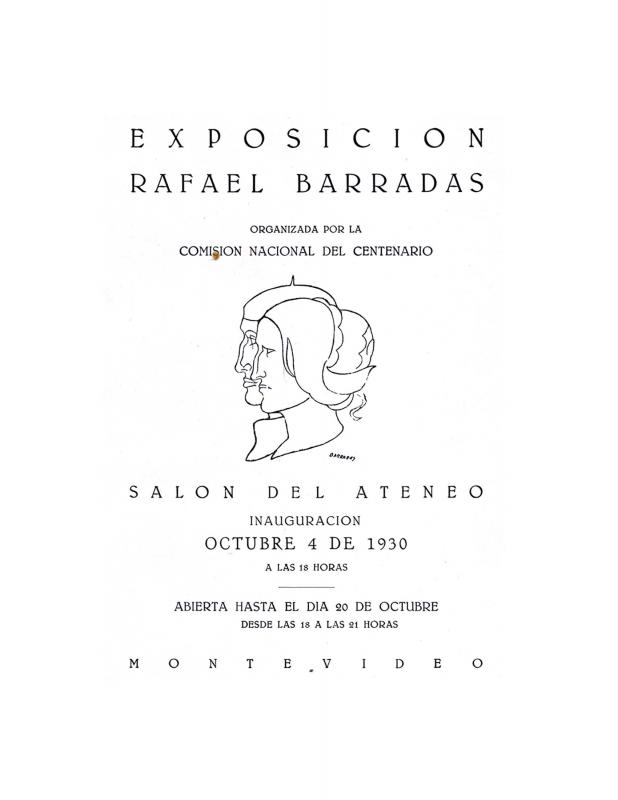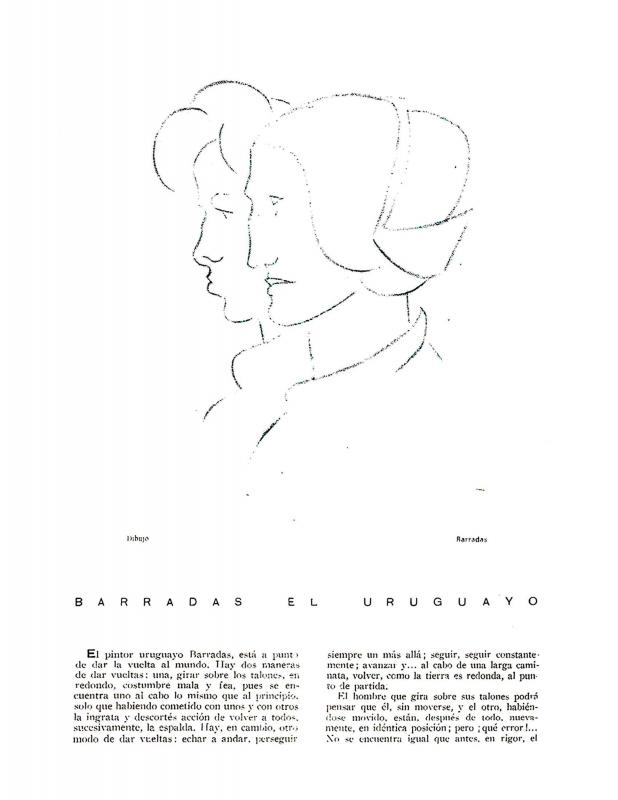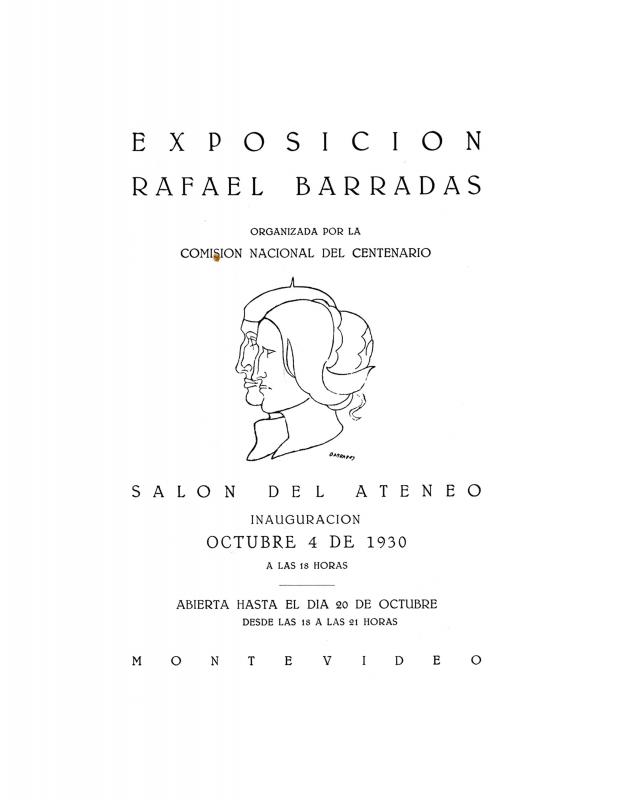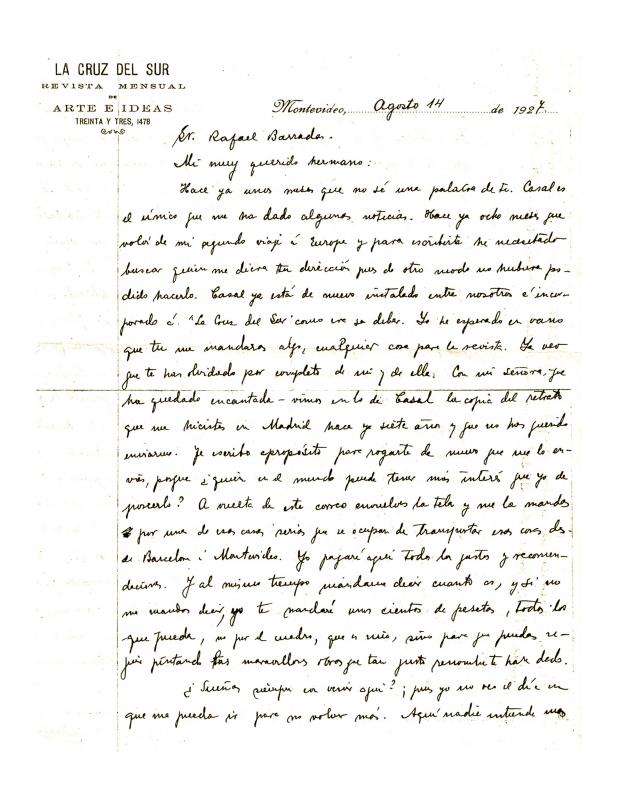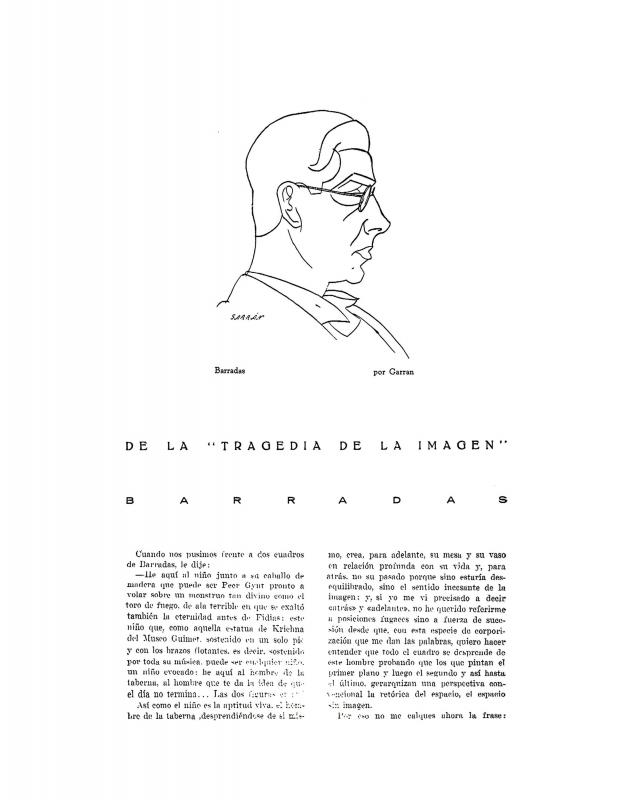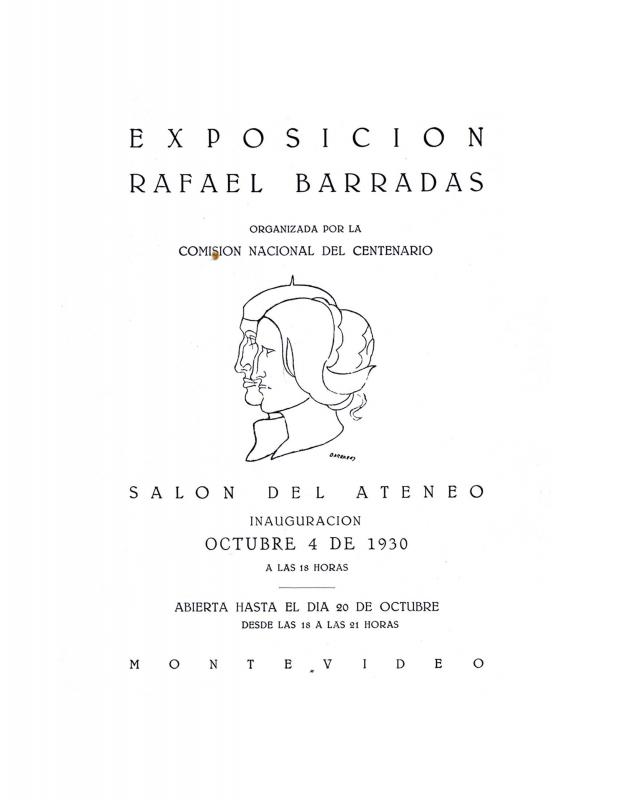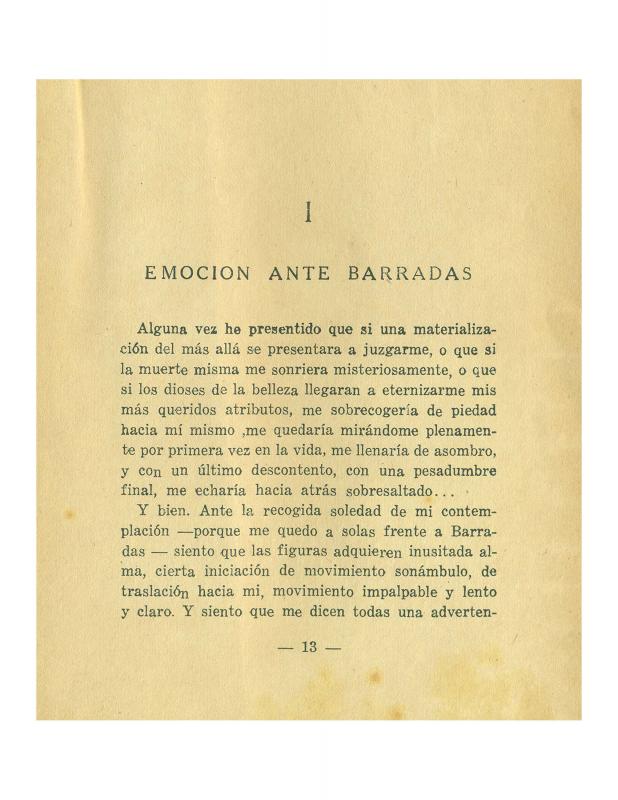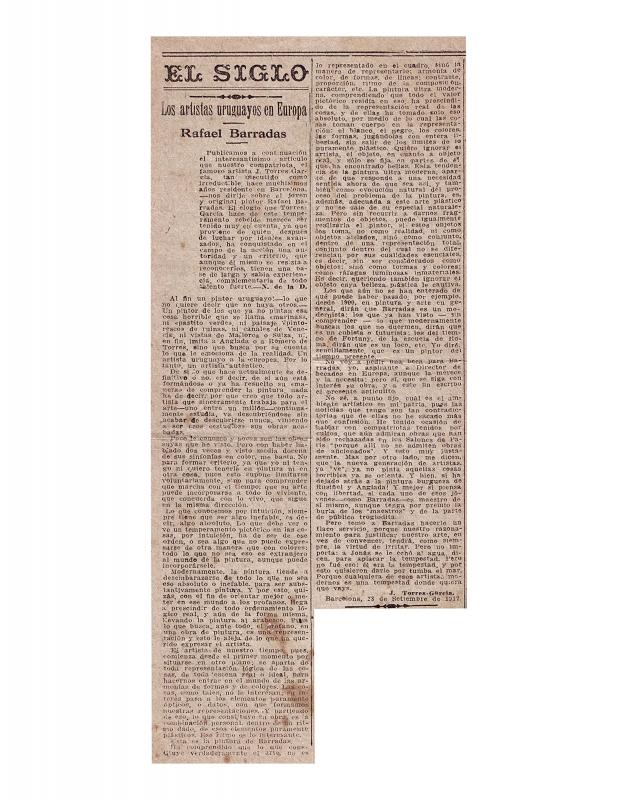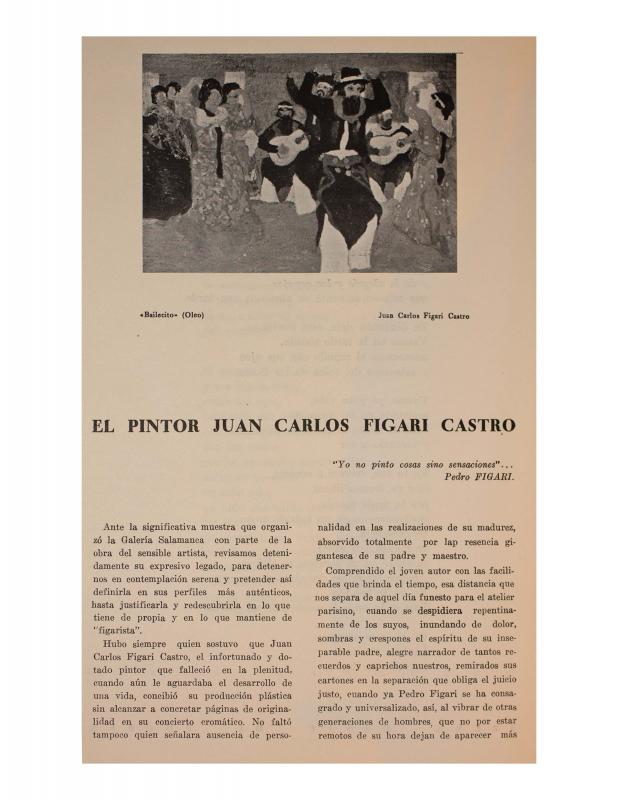The writer and critic Clotilde Luisi (1882–1969) came from an intellectual family that was known in the local Montevidean milieu. In fact, she was the first female that graduated as a lawyer in Uruguay in 1911 and her sisters, similarly, followed in her footsteps. In this essay, the author’s views on the work of Rafael Barradas (1890–1929) were written from a psychological perspective highlighting his peculiar way of reconciling the present with the past that in her opinion, was a problematic characteristic of Uruguayan intellectuals in the 1920s. She observed that his creative activism embodied sacred spaces and his scholarships experiences abroad, reinforcing the following opinion by other critics on his work: That man is always present in his work, either in the factory, at the port of destination or in the conventional objects. Barradas, to the author, was an intellect that was sensitive to the representation of spaces that were both contemporary and traditional, that is, the coffee, the inns, the streets. In short, the artist lets nothing escape because through a fusion of emotions he converges the new with the old. The magazine Alfar (originally published in La Coruña, Spain) would continuously publish articles and images on Barradas, and thus created a lasting memory of the artist until it stopped being published in 1954 with the death of Julio J. Casal (1889–1954) its editor and promoter.
[Please refer to the ICAA digital archive and the following texts for further reading on the Uruguayan artist: “Barradas” (doc. no. 1243461) and “Barradas el uruguayo” (doc. no. 1197352) written byManuel Abril, “Barradas pintor de eternidad” by Artur Perucho (doc. no. 1243392), “Carta a Rafael Barradas” by Alberto Lasplaces (doc. no. 1250919), “De la Tragedia de la Imagen [Barradas]” (doc. no. 1225969) and “Rafael Barradas” by Vicente Basso Maglio (doc. no. 1243440), “Emoción ante Barradas” by Cipriano Santiago Vitureira (doc. no. 1218884), “Los artistas uruguayos en Europa: Rafael Barradas” by Joaquín Torres García (doc. no. 1228429), “El pintor Juan Carlos Figari Castro” by Jorge Páez Vilaró (doc. no. 1228547).]

